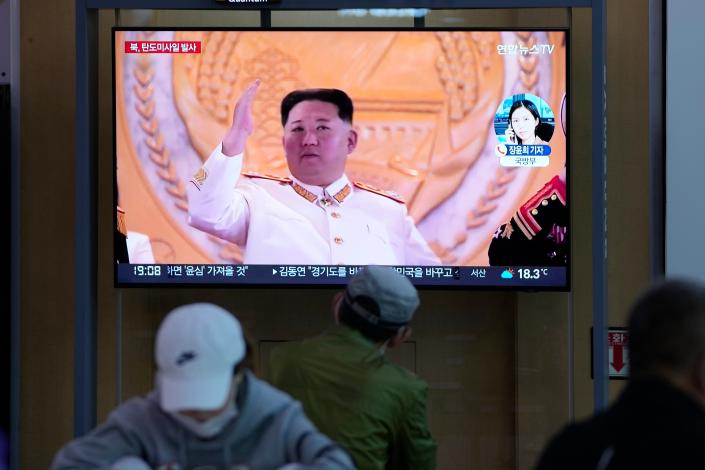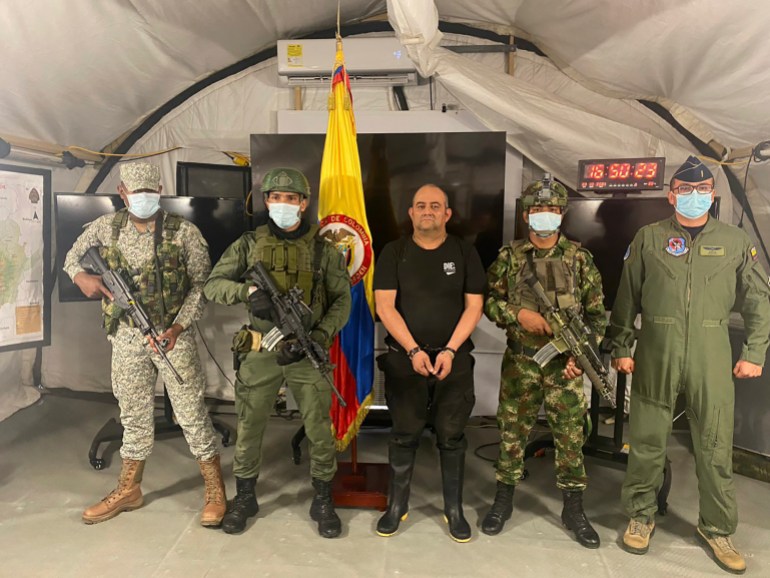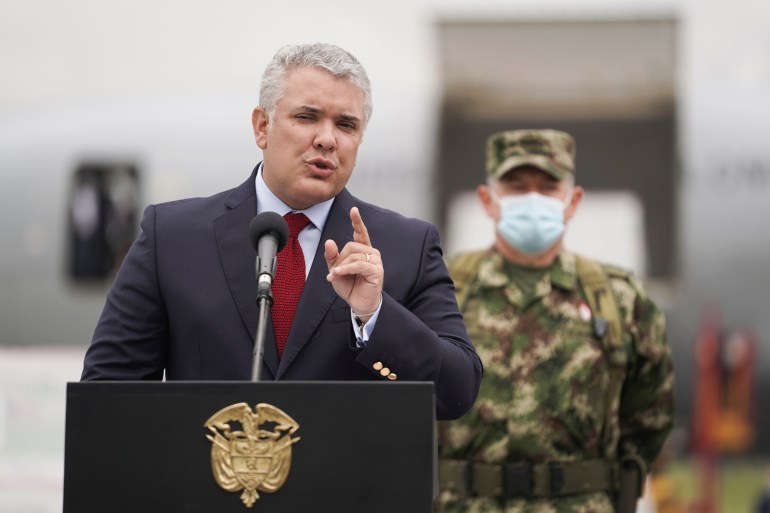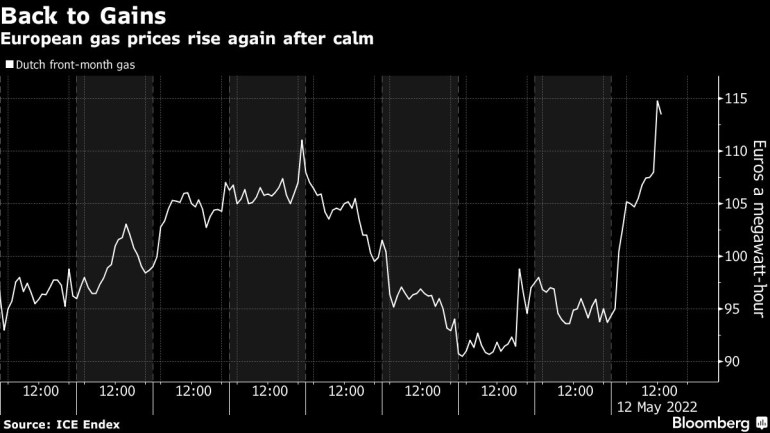[ad_1]
Washington, DC – In a United States Congress that is largely unconditional in its support for Israel, many lawmakers have condemned the killing of Al Jazeera journalist Shireen Abu Akleh, who was fatally shot by Israeli forces on Wednesday.
Still, few Congress members mentioned Israel by name as the perpetrator of the deadly incident, while some legislators who serve in leading roles on foreign policy and press freedom panels ignored the shooting altogether.
Congresswoman Rashida Tlaib, a Michigan Democrat, has been the most outspoken.
The progressive lawmaker, who is of Palestinian descent, called for a moment of silence for the slain journalist on the floor of the House of Representatives on Wednesday and condemned the killing in several statements and media appearances.
“An American journalist clearly marked with press credentials was murdered. Doing and saying nothing just enables more killings,” she wrote in a tweet directed at President Joe Biden, invoking US military aid to Israel, which totals $3.8bn annually.
“Whether you’re Palestinian, American, or not, being killed with US funding must stop,” Tlaib said.
In a TV interview with Al Jazeera later on Wednesday, she also called for a US-led probe into the incident.
“We need to investigate, ourselves, the killing of an American citizen. Somebody that was out there being a guardian of truth and doing her job was murdered by an apartheid government that we continue to fund with unconditional aid,” she said.
Abu Akleh was a US citizen – a fact emphasized by several American officials.
Congressman Mark Pocan, a key House progressive, also suggested restricting US aid to Israel.
“Restrictions on aid may be necessary if human rights and universally acceptable norms can’t be followed,” he wrote on Twitter.
The US government’s condemnation of the killing of an American journalist is a welcome reaction to an untenable situation in Israel and Palestine. Restrictions on aid may be necessary if human rights and universally acceptable norms can’t be followed. https://t.co/I5yiv1FONk
— Rep. Mark Pocan (@repmarkpocan) May 12, 2022
The congressional statements on the killing of Abu Akleh came from Democratic Party lawmakers, most of whom are part of the party’s progressive wing.
Al Jazeera was not able to find any statement by Republican legislators denouncing the killing.
Ilhan Omar, a left-wing, Muslim-American member of the House, was unambiguous in blaming Israel for the Palestinian journalist’s killing.
“She was killed by the Israeli military, after making her presence as a journalist clearly known,” she wrote on Twitter. “We provide Israel with $3.8 billion in military aid annually with no restrictions. What will it take for accountability for these human rights violations?”
Omar’s fellow Muslim lawmaker Andre Carson also called on the US government to “hold the Israeli government accountable for this and all other acts of unjust violence it commits.”
I join countless others in mourning the death of @AlJazeera journalist, #ShireenAbuAkleh, who was killed by Israeli military while on assignment. The US must hold the Israeli government accountable for this and all other acts of unjust violence it commits.
— André Carson (@RepAndreCarson) May 11, 2022
Several top Democrats joined progressive members of the party in paying tribute to Abu Akleh and calling for an investigation, but they did not point the finger at Israel.
“The killing of American journalist Shireen Abu Akleh is a horrific tragedy,” House Speaker Nancy Pelosi, a staunch supporter of Israel, wrote on Twitter.
“A thorough, objective investigation is needed now. Congress is committed to the defense of press freedoms worldwide and protection of every journalist, particularly those in conflict zones.”
Senator Ben Cardin, a senior Democrat and outspoken backer of strong US-Israel ties, said he was “disturbed” by the killing of Abu Akleh.
“Abu Akleh’s death is an attack on a journalist who was wearing her press gear,” he said in a statement. “No journalist should be killed while simply doing their job. I strongly condemn her death and call for an independent and thorough investigation into the incident.”
Senator Chris Van Hollen also urged an independent probe into the incident.
.@SpeakerPelosi is right. Anyone who believes in press freedom and justice should call for a thorough and independent investigation into the killing of American journalist Shireen Abu Akleh. https://t.co/eUqO133GwO
— Senator Chris Van Hollen (@ChrisVanHollen) May 12, 2022
So did Senator Chris Murphy of Connecticut. “Veteran American journalist Shireen Abu Akleh was simply doing her job when she was shot and killed early this morning,” he said in a statement on Wednesday.
“Her heartbreaking death should be considered an attack on freedom of the press everywhere. There must be a thorough investigation and full accountability for those responsible.”
Adam Schiff, chair of the House Intelligence Committee and co-chair of the Congressional Caucus for the Freedom of the Press, also called the fatal shooting of the Palestinian-American journalist a “terrible tragedy”.
“The Israeli military must conduct a thorough and objective investigation into Abu Akleh’s death, and be transparent about its findings,” Schiff said in a statement. “My prayers are with her family, with her colleague, Ali Al-Samudi, who was also wounded, and with members of the press everywhere who risk their lives to bring us the truth.”
Palestinian rights advocates have rejected calls by US officials for Israel to conduct its own investigation, arguing that the Israeli government should not be trusted to hold itself accountable for alleged war crimes.
Steve Chabot, the Republican co-chair of the Press Freedom Caucus, has not released any formal statement about the killing on his congressional webpage or social media accounts. His office did not return Al Jazeera’s request for comment by time of publication.
Congressman Andy Levin, a Jewish-American representative from Michigan, who is facing off in a primary against fellow Democratic incumbent Haley Stevens after redistricting, said he was “horrified” by the killing of Abu Akleh.
“Globally, in places as diverse as Palestine, Mexico and Russia, the international community must come together to defend the rights of the free press,” he wrote in a series of tweets.
Stevens, who is backed by numerous pro-Israel groups, including the American Israel Public Affairs Committee (AIPAC), has said nothing about the incident on her social media accounts or on her congressional website.
Debbie Dingell, another Michigan legislator, who represents a large Arab-American community, said press freedom is “paramount in any democracy”.
The killing of Palestinian American journalist Shireen Abu Akleh is horrifying & heartbreaking. Freedom of the press is paramount in any democracy.
I join the Admin in calling for a thorough investigation to hold those responsible to account.https://t.co/M1QWe1n0l0
— Rep. Debbie Dingell (@RepDebDingell) May 11, 2022
The chairs of the House and Senate foreign policy panels did not address the incident in formal statements. The House Foreign Affairs Committee shared Pelosi’s post on the killing via its Twitter account.
The fatal shooting of Abu Akleh coincided with a busy week in Washington, which is preoccupied with domestic issues, including a baby formula shortage and a failed attempt to pass legislation protecting abortion rights.
Ro Khanna, a progressive House representing a district in California, wrote in a social media post, “The killing of American journalist Shireen Abu Akleh is devastating and a blatant assault on the freedom of the press.”
New York Representative Yvette Clarke said the killing is “yet another reason why we need a path to a two-state solution in the region”.
I want to express my sincere condolences to the family of journalist, Shireen Abu Akleh. Some of them call New York’s 9th District home. This tragedy is yet another reason why we need a path to a two-state solution in the region. https://t.co/rBt2yM9bsK
— Yvette D. Clarke (@RepYvetteClarke) May 11, 2022
Congresswoman Marie Newman, who often criticizes Israeli abuses against Palestinians, said she was “extremely concerned by reports that Al Jazeera reporter Shireen Abu Akleh was shot and killed by Israeli forces while wearing a press vest and reporting in the West Bank”.
“We must protect the press and hold those accountable for this heinous crime,” she wrote on Twitter.
Congresswoman Cori Bush, a progressive supporter of Palestinian rights, condemned the “unacceptable attack”.
Congresswoman Betty McCollum, who has championed Palestinian human rights in Congress and introduced bills to restrict US aid to Israel, also said the killing must be “condemned and investigated”.
The Israeli military killing of Shireen Abu Akleh is devastating and infuriating. I condemn this unacceptable attack on her, on Palestinians and the freedom and safety of everywhere.
There must be accountability, and we must demand an end to Israeli apartheid. https://t.co/q3SfPFVQ6G
— Congresswoman Cori Bush (@RepCori) May 12, 2022
[ad_2]
Source link












